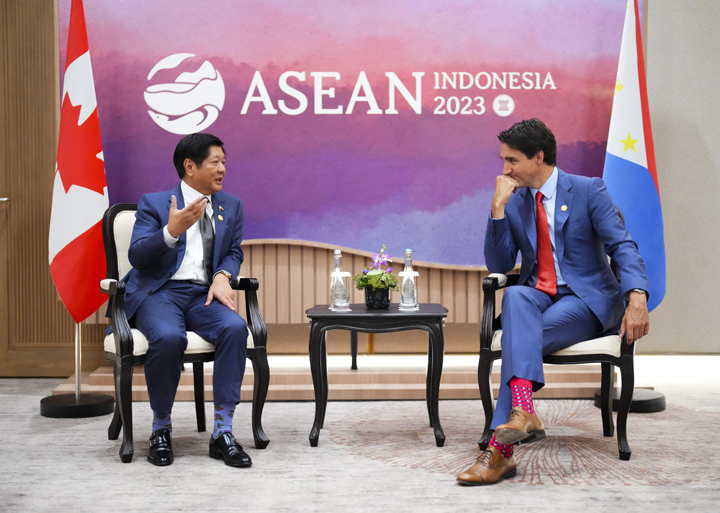
PRESIDENT Ferdinand R. Marcos, Jr. on Wednesday reported a breakthrough in the ongoing efforts of the Association of Southeast Asian Nations (Asean) to craft the Code of Conduct (COC) in the South China Sea (SCS).
“We are pleased that at the last negotiations on the Code of Conduct in the South China Sea held in Manila a few weeks ago, that some progress was made in discussing the milestone issues and a preliminary review of the Single Draft Negotiating Text (SDNT),” the chief executive said during his intervention in the 26th Asean-China Summit in Jakarta, Indonesia.
He made the remark as he stressed the importance of the COC to prevent further international disputes in the SCS, which may hamper maritime navigation and trade.
An operational COC based on 1982 United Nation Convention on the Law of the Sea (Unclos) will help ensure peace in the SCS, according to Marcos.
“We must emphasize that practical cooperation in the maritime domain can only flourish with an enabling environment of regional peace, security, and stability, anchored in international law,” Marcos said.
Such cooperation includes the Asean-China Free Trade Area 3.0 Upgrade Negotiations as well as efforts for China’s Belt and Road Initiative to complement the Asean Outlook on the Indo-Pacific.
Hegemonic ambition
In his intervention during the 43rd Asean Summit Retreat, the President pushed for fast tracking the completion of the COC and operationalization of the Asean Defense Ministers’ Meeting (ADMM) for Maritime Interaction to ensure international order instead of “hegemonic ambition” will take precedence in addressing SCS-related issues.
“As tensions and mistrust between the great powers escalate, so, too, does the prospect of miscalculation that threatens to engulf the region, with the severest consequences for all of us,” Marcos said.
“It is imperative that we leverage the Asean regional architecture to serve as a diplomatic bridge that promises mutual understanding, strategic trust, and peaceful settlement of disputes,” he added.
The United States has started exerting its influence in the SCS amid the aggression of China in defending its territorial claims in the said area.
Earlier this year, it initiated its trilateral defense agreement with the country and Japan in response to its growing concerns to North Korea, Russia and China.
China opposed the increased presence of the US in the Asian region.
Statement of support
At the 26th Asean-Japan Summit in Indonesia, Japanese Prime Minister Fumio Kishida issued a statement backing an international order-based approach in settling disputes in the Indo-Pacific waters.
He also opposed the militarization of reclaimed features in the SCS and expressed concern for continued illegal, unreported, and unregulated (IUU) fishing activities in the said area.
Leaders of Japan, US and South Korea have already raised these concerns during their meeting in Camp David last month.
Marcos lauded the pronouncements, which he said will help generate international solidarity to prevent new conflicts in the SCS.
“I cannot emphasize enough the expediency of maintaining peace and stability in the region through the adherence to the rule of law, particularly the 1982 Unclos. Our shifting security issues make it quite clear that we must work together for the sake of peace and stability in our region and in the world,” the President said.
Image credits: Sean Kilpatrick/The Canadian Press via AP
